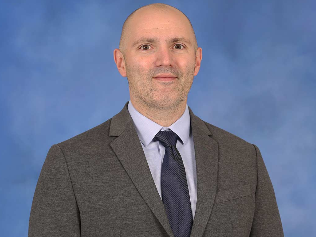AME Seminar: Jason Mayeur

Thursday, February 2, 2023 - 4:00 p.m.
CANCELLED. The seminar will be rescheduled for a later date.
Jason Mayeur
Manufacturing Sciences Division
Oak Ridge National Laboratory
"Crystal Plasticity Modeling of Lattice Strain Distributions in Additively Manufactured IN718"

Abstract: It is well-established that additively manufactured metallic materials exhibit uniquely heterogeneous microstructures relative to conventional wrought and cast counterparts due to the extreme thermal gradients produced when building components up on a layer-by-layer basis through a sequence of repeated melt and solidification events. Of course, these microstructural differences between additive and conventionally processed materials lead to, sometimes undesirable, differences in mechanical properties, e.g., strength, ductility, anisotropy, etc. Therefore, detailed understanding of the relationships between microstructure and material properties is essential for determining optimum processing and/or post-build treatment conditions to achieve specific performance objectives. To this end full-field mesoscale computational modeling of statistical volume elements, coupled with calibration and validation experiments, provides a pathway for establishing these microstructure-property relationships. However, the fidelity of these relationships is sensitive to the microstructure representation and grain scale constitutive model, and the connections between these model inputs and predicted results must be characterized. This study examines the influence of grain size strengthening assumptions on the evolution of lattice strain distributions for IN718 produced by laser powder bed fusion processing.
Bio: Dr. Mayeur obtained his MS and Ph.D. degrees in mechanical engineering from the Georgia Institute of Technology and his BS degree in mechanical engineering from the University of Kentucky. After completing his PhD, he joined the Theoretical Division at Los Alamos National Laboratory where he spent six years working as a post-doctoral researcher and staff scientist. Prior to joining Oak Ridge National Laboratory, Dr. Mayeur spent a few years in Huntsville, AL working as a research engineer at CFD Research and as an assistant professor in the Mechanical and Aerospace Engineering Dept. at the University of Alabama in Huntsville. His research uses multi-scale modeling to study deformation and failure of engineering materials, and focuses on identifying the relationships between material processing, microstructure, and performance. The overarching objective of his research is to increase the efficiency with which next generation engineering materials and manufacturing processes are designed, developed and certified using modeling and simulation. Current topics of interest include: nonlocal material behavior, interface-driven phenomena, surrogate and data-driven modeling, and material/microstructure informatics.

